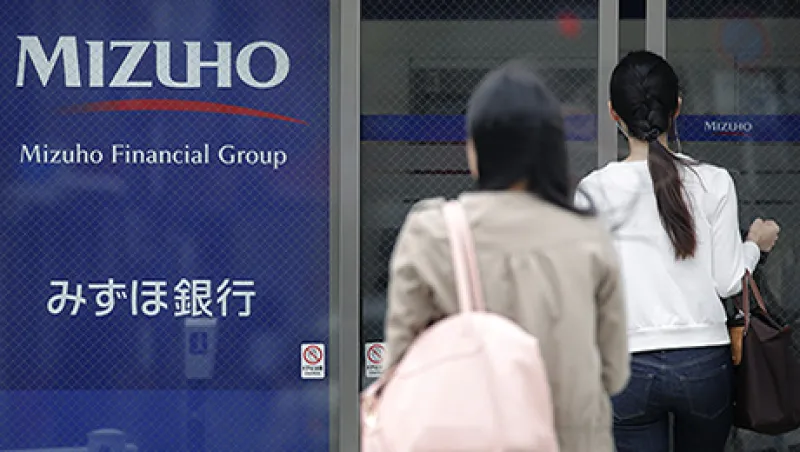
A woman, right, enters a Mizuho Bank Ltd. branch in Tokyo, Japan, on Tuesday, May 12, 2015. Mizuho Financial Group Inc. is scheduled to release their full-year earnings on May 15. Photographer: Kiyoshi Ota/Bloomberg
Kiyoshi Ota/Bloomberg

A woman, right, enters a Mizuho Bank Ltd. branch in Tokyo, Japan, on Tuesday, May 12, 2015. Mizuho Financial Group Inc. is scheduled to release their full-year earnings on May 15. Photographer: Kiyoshi Ota/Bloomberg
Kiyoshi Ota/Bloomberg